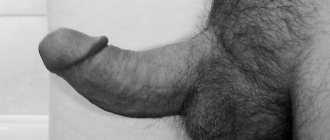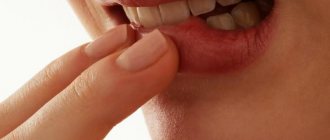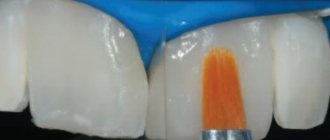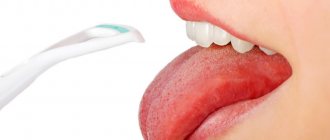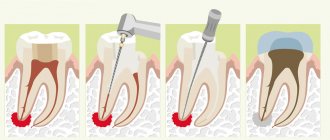Current problem
For most people, heartburn is simply an occasional discomfort. Approximately 20% of the population of highly developed countries experience it at least once a month.
But for the 6% of people who have a chronic form of heartburn known as gastroesophageal reflux disease (GERD), unresolved (untreated) symptoms can lead to various health complications. People with erosions in the lining of the esophagus due to acid reflux often do not realize the harm of GERD until they have advanced stages of the disease.
If you experience frequent or prolonged heartburn (twice a week on a regular basis), consult your doctor. Here are nine reasons why you shouldn't ignore the symptoms of gastroesophageal reflux disease.
Regurgitation at an early age
In young children, burping is considered normal after drinking milk.
During infancy, regurgitation of breast milk along with some air is a normal physiological process.
A certain amount of air masses enters the stomach during feeding and serves to normalize pressure.
Since the activity of the baby’s digestive tract is not properly regulated, air bubbles can enter the intestines, causing unpleasant pain and flatulence. All this goes away with a belch. Therefore, after feeding, it is recommended to carry the baby in your arms until excess air is released. As you grow older, the need for this disappears.
It is better to rock hyperactive children who cannot calmly suckle the breast before feeding and wait until the baby calms down. You should also interrupt feeding to allow the air to escape. It would not be superfluous to consult a neurologist. Belching in a one-year-old toddler should worry parents. In this case, medical attention is needed.
In young children, the state of the digestive organs directly depends on the stable functioning of the nervous system. Hyperactive children are more vulnerable in this regard. Baby burping can also be caused by:
- active distracting activities during meals;
- watching TV while eating;
- lack of discipline while eating;
- ENT diseases.
School-age children burp for the same reasons as adult patients:
- disruption of the digestive system;
- liver problems;
- violation of the outflow of bile.
Development of inflammation in the esophagus (esophagitis)
In gastroesophageal reflux disease, food, acid, and digestive juices back up into the esophagus. Over time, this causes irritation and swelling of the mucous membrane lining the inside of the esophagus. This is esophagitis. If acid exposure in the esophagus is observed for just a few weeks, then inflammation of the mucous membrane can already develop. This can cause discomfort and even pain along the midline of the abdominal wall, “in the pit of the stomach,” where the right and left ribs meet at the sternum. This inflammation makes the esophagus vulnerable to even more dangerous conditions - erosions or scars.
Symptoms
Bitterness in the mouth can manifest itself in different ways, for example:
- after overeating and eating certain foods - indicates the reflux of bile into the esophagus and diseases of the bile ducts,
- aftertaste after taking medications means a disruption of the normal microflora, a negative effect on the liver and the destruction of beneficial bacteria,
- after sports training - speaks of liver pathologies.
Bitterness can occur at different times of the day, after physical activity and during the abuse of bad habits. Often the symptom is accompanied by nausea and vomiting, dizziness, heaviness in the side and abdominal pain, white coating on the tongue and a feeling of bloating, heartburn and belching, dry mouth. At the appointment, you need to inform the doctor in detail about each sign.
Esophageal stricture
If esophagitis continues for too long, the resulting scar tissue can narrow the esophagus. This stricture can lead to difficulty passing and swallowing food, which can become stuck at the level of scar tissue, causing pain.
Large pieces of food may become stuck and this situation may require endoscopic intervention to remove them. The stricture may cause frequent choking when eating. Because of this, patients often refuse to eat and lose a lot of weight.
Stricture is treated by widening or stretching the esophagus (bougienage or dilatation). These treatment procedures can have multiple effects on the stricture. But taking stomach acid blockers (proton pump inhibitors, PPIs, or H2 blockers) may prevent scarring in the esophagus from returning in the future.
The main causes of bitterness
What does bitterness in the mouth indicate? There are actually a lot of reasons why a person begins to feel this. In this way, the body may try to “indicate” diseases of the digestive system or a gallbladder disease. This sensation may also be a sign of poor nutrition or taking medications of various spectrums for too long (mainly those used to treat the liver).
The main causes are diseases of the gastrointestinal tract (GIT):
- Diseases of the duodenum. Bile from the duodenum, entering the stomach, causes corrosion of its walls. Bile contains acids that cause a feeling of bitterness.
- Gastritis (see symptoms and treatment of gastritis). With this disease, the composition and amount of gastric juice produced by the body changes, the process is also accompanied by poor digestibility of proteins, fats, carbohydrates and other vitamins, and the removal of toxins worsens. Together, this causes heartburn, bad breath, constant belching and, accordingly, an unpleasant taste in the mouth.
- Gastric dyspepsia. The cause of the bitter taste may be difficult digestion caused by disruptions in the functioning of the stomach.
- Gastroesophageal reflux disease. This disease provokes surges of concentrated gastric juice to the very top of the esophagus, from where it enters the oral cavity. It can develop due to the abuse of spicy and fatty foods, as well as constant overeating (even healthy food rich in vitamins and minerals - an excess of it is also harmful).
- Disturbances in motor activity of the stomach. With reduced motility of the biliary tract, bile stagnates in them; with increased motility, there are sharp releases of bile into the duodenum, then into the stomach, esophagus and oral cavity, causing bitterness, burning and heartburn.
- Dysbacteriosis. Under normal conditions, a large number of beneficial bacteria live and function in the human intestine, capable of synthesizing vitamins, creating microflora and generally increasing the body’s immune strength. If the intestinal microflora is normal, then no problems are observed, but if an imbalance occurs, then dysbacteriosis appears, causing bitterness in the mouth.
- Giardiasis. A disease caused by the penetration of Giardia (intestinal parasites) into the body, causing disorders in the functioning of the small intestine. Nausea, bitterness occurs, and sleep is disturbed.
Dental diseases:
- Inflammation of the gums, mucous membrane of the tongue. This occurs if a person carelessly takes care of their teeth, and bad breath adds to the bitterness.
- Increased sensitivity to external interventions - implantation of dental crowns, dentures or fillings. The bitter taste is often caused by raw materials for dentures, fillings or gel for fixing an artificial jaw.
Other reasons include:
- If there is liver dysfunction (any disease), then increasing inflammatory processes negatively affect the production of bile and its transportation through the relevant systems of the body.
- Nervous system disorders, in which the peripheral nerves responsible for the taste buds and sense of smell become inflamed, also alter the perception of the taste of food and make it bitter.
- At moments when the level of glucose in the blood rises, vision begins to deteriorate, a feeling of weakness and heat appears in the palms and soles, along with this, a bitter taste becomes very noticeable in the mouth.
- General intoxication of the body, which is observed when it is damaged by heavy metals such as mercury, lead, copper and others.
- Disturbances in the functioning of the endocrine system lead to the fact that the thyroid gland, together with the adrenal glands, begins to produce huge amounts of adrenaline. As a result of this, the bile ducts narrow, which provokes the release of bile towards the esophagus and the appearance of bitterness.
- Lack of zinc - an important trace element that is necessary for the normal functioning of cells and taste buds in particular.
- Smoking for many years. Long-term exposure to tobacco and its derivatives has a detrimental effect on the taste buds, as a result of which the smoker begins to feel an unpleasant bitterness.
Throat and voice problems
The main symptom of gastroesophageal reflux disease is heartburn, but not all people feel or report it. They may have other symptoms that are more difficult to diagnose. Doctors call these cases "silent reflux," or asymptomatic reflux. The patient may not have heartburn as classically described in textbooks, but they may have various other problems that occur outside the esophagus, such as hoarseness, voice changes, sore throat, or chronic cough. They feel as if there is a lump or hair in their throat and constantly have to clear their throat by coughing and clearing their throat.
Why do we need to treat bitterness in the mouth?
Since an unpleasant taste in the mouth is a symptom of some pathology, a comprehensive examination is needed, without which it is impossible to establish a diagnosis. Our clinic has the latest equipment for ultrasound diagnostics of the liver and gallbladder, gastroscopy, etc., which help identify the pathological process in a short time. Our own laboratory allows you to get test results within a few hours. It is the quick examination process that attracts many Moscow residents to our clinic, as well as experienced, qualified staff ready to help every patient.
Breathing problems
If stomach acid accidentally flows into the windpipe after gastroesophageal reflux disease causes it to enter the esophagus, GERD can worsen asthma or pneumonia. Even without lung problems, GERD can cause shortness of breath and difficulty breathing. And treatment in this situation can be a double-edged sword. Because GERD medications, such as proton pump inhibitors, may actually increase the risk of pneumonia. (They can promote bacterial growth and suppress coughing, which is designed to help clear the lungs.)
Pay your doctor's attention to your lung function when treating reflux.
The process of regurgitation at the end of a meal
Belching may occur after eating.
At the end of a meal, the process of belching can be a physiological norm.
However, in case of disturbances in the functioning of the gastrointestinal tract, belching after eating is also a characteristic symptom; it indicates:
- inflammation of the pancreas in a sluggish and acute form;
- inflammation of the duodenal bulb;
- violation of the patency of the bile ducts;
- inflammation of the intestinal mucosa with a high concentration of acid in the gastric juice;
- inflammatory processes in the esophagus.
Regurgitation that is periodic in nature may indicate disturbances not only in the functioning of the digestive organs, but also some hidden diseases of other systems. Therefore, it is necessary to obtain a conclusion about your health status from your attending physician.
To summarize, we can say that periodic belching occurs due to:
- insufficiently balanced diet;
- irregular eating habits;
- excessively active behavior at the table;
- swallowing large amounts of air;
- dysfunction of the digestive system;
- diseases of other organs not related to the process of digesting food. For example, problems with cardiac activity also contribute to the appearance of belching;
- hiatal hernia.
In addition, there are a number of diseases accompanied by belching phenomena:
- ulcerative lesions in the intestines and stomach;
- insufficient secretion of digestive enzymes;
- reflux of stomach contents into the esophagus;
- disruption of the outflow of bile and the functioning of the pancreas.
Esophageal ulcers
Stomach acid can erode the lining of the esophagus, causing sores and ulcers. Esophageal ulcers are different from stomach ulcers, which are usually caused by bacteria. People with wounds and sores may spit up blood and may also vomit blood. They may see blood in their stool. The blood may be red, cherry red, or like coffee particles. In stool, blood from the esophagus and stomach usually turns black when passing through the small intestine, the color and appearance of oil - viscous, slippery, and difficult to wash off.
Contact your doctor immediately if you have these symptoms. Endoscopy can detect ulcers of the esophagus. Acid-blocking or acid-lowering medications may make them disappear.
The main diseases that cause belching
First of all, pathological belching is periodic and serves as a symptom of diseases such as:
- inflammatory process in the pancreas;
- inflammation of the gastric mucosa;
- dysfunction of the gallbladder;
- inflammation of the duodenal mucosa;
- stomach ulcer;
- displacement or compression of the esophageal tube;
The appearance of regular belching in combination with an unpleasant rotten smell should be alarming; a lump in the stomach may also be felt. These symptoms are typical for malignant neoplasms.
Barrett's esophagus
If left untreated for many years, persistent acid reflux can form changes in cells known as Barrett's esophagus, which is considered a precancerous condition. This condition does not cause many symptoms other than those of reflux. A doctor can diagnose it by performing an endoscopy.
If you have heartburn more than twice a week for a long time, or if you have symptoms of gastroesophageal reflux disease that are getting worse or you have discovered new ones that you didn't have before, these are all reasons to get checked and have an endoscopy.
Regurgitation with a bitter taste
Belching with a bitter taste occurs due to a violation of the outflow of bile masses.
Belching with a pronounced bitter taste indicates:
- disorders of the outflow of bile masses, when bile moves in the opposite direction to the stomach, and not to the intestinal tract. This is due to dysfunction of the pyloric valve and increased pressure in the duodenum;
- damage, neoplasms, displacements, compression of the intestines. In this case, bile is poured into the stomach and enters the oral cavity;
- some medications relax the intestinal muscles and help open the valve between the intestines and the stomach;
- surgical interventions can damage the muscle tissue of the locking mechanism, and bile will constantly leak into the stomach;
- inflammatory processes in the small intestine lead to increased pressure and the release of bile;
- during pregnancy, all abdominal organs are displaced and compressed, which also causes belching;
- in rare cases, a completely healthy person can also belch with bitterness.
Esophageal carcinoma
In very serious cases, untreated gastroesophageal reflux disease (and subsequent Barrett's esophagus) can lead to esophageal cancer. The main risk factors are alcohol consumption, smoking, poor nutrition, and chronic esophageal diseases with reflux.
Symptoms include weight loss, trouble swallowing, or gastrointestinal bleeding. This is something that happens over decades of untreated reflux (30-40 years), so those who are 30 and otherwise healthy have no reason to suspect cancer. But if you're over 50 and have had heartburn for years and suddenly lose weight, for example, this is definitely what your doctor will suspect first.
Symptomatic therapy
If the symptom is observed quite rarely and is not accompanied by other unpleasant signs of the gastrointestinal tract, belching can be dealt with using non-drug means. The main factor is the normalization of eating habits: avoiding fatty, smoked and fried foods, limiting alcohol and carbonated drinks, which cause stomach distension and gas formation. You need to eat food 4-5 times a day in small portions; after eating, you should not bend over or do heavy physical work.
Bitter belching that lasts more than 5 days is a sign of a disease of the digestive or biliary system and requires contacting a specialist. Before undergoing a full examination and making a clinical diagnosis, medications can be used to reduce unpleasant symptoms: prokinetics to improve gastrointestinal motility and prevent the reflux of duodenal contents into the gastric cavity, choleretic drugs to normalize the rhythm of bile secretion. For concomitant pain syndrome, antispasmodics are used.
Diagnosis of heartburn
Recommended Laboratory Tests
- General blood analysis.
- Biochemistry and liver tests.
- Test for antibodies to Helicobacter pylori.
- Coprogram.
Instrumental studies
- Urease breath test for Helicobacter.
- FGDS with the possibility of taking a biopsy (to exclude cancer).
- Ultrasound, X-ray with contrast agent and CT.
- Esophageal pH monitoring, esophageal manometry.
If necessary, the patient is referred to an endocrinologist, pulmonologist, cardiologist and other highly specialized specialists.
Heartburn in children
In addition to problems with the digestive tract and dietary errors, heartburn in children can be caused by completely non-trivial reasons:
- neurological pathology,
- scoliosis,
- cystic fibrosis,
- ENT pathology,
- lung diseases.
In most children, heartburn is not as severe as in adults. However, unpleasant sensations cause discomfort to babies. Infants arch their backs, often burp, release gases and are capricious. At the same time, even with the slightest nutritional disorder in children, pain comes to the fore. Even slight bloating causes regularly recurring attacks of intestinal colic, and heartburn often leads to vomiting and refusal to eat. This can lead to insufficient weight gain, and uncontrollable vomiting quickly leads to dehydration.
Tips for parents for heartburn in children
- After feeding, the baby should be held upright for a while.
- If you have heartburn, first of all you should analyze your diet and diet, exclude all foods that cause heartburn (including limiting carbohydrates).
- Don't delay visiting the pediatrician. Against the background of prolonged heartburn and indigestion, anemia, apnea, and wheezing in the lungs may develop.
Important! It is necessary to exclude congenital anomalies of the digestive sphincter, intolerance to milk proteins and celiac disease.
Heartburn in pregnant women
Heartburn bothers 30-50% of pregnant women. In the absence of organic damage to the digestive tract, burning along the esophagus (functional heartburn) is caused by hormonally caused relaxation of the lower esophageal sphincter, increased pressure in the abdominal cavity and displacement of the stomach due to an increase in the size of the uterus. However, it is possible that the expectant mother develops a gastrointestinal disease or that an existing pathology has worsened.
Typically, heartburn first appears in the 20th week of pregnancy and torments the woman until childbirth. A common myth is that burning sensation in the esophagus is caused by hair growth on the fetal head. Expectant mothers should take care of proper nutrition and daily routine, and not believe in prejudices.
Pregnant women are not recommended to take antacid medications on their own. First, some medications can negatively affect the fetus. Secondly, it is extremely undesirable to trigger a serious illness. Malabsorption of nutrients can lead to fetal malnutrition and other abnormalities.
Important! Functional heartburn does not harm the unborn baby. The first step to getting rid of a burning sensation in the esophagus is maintaining proper nutrition.

